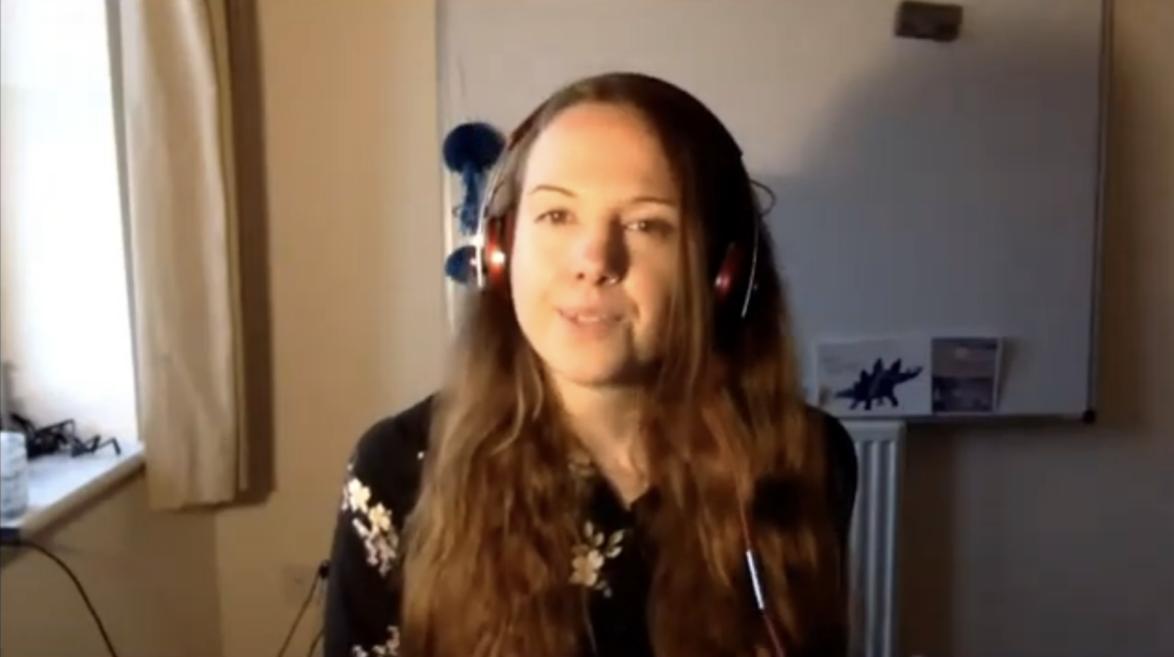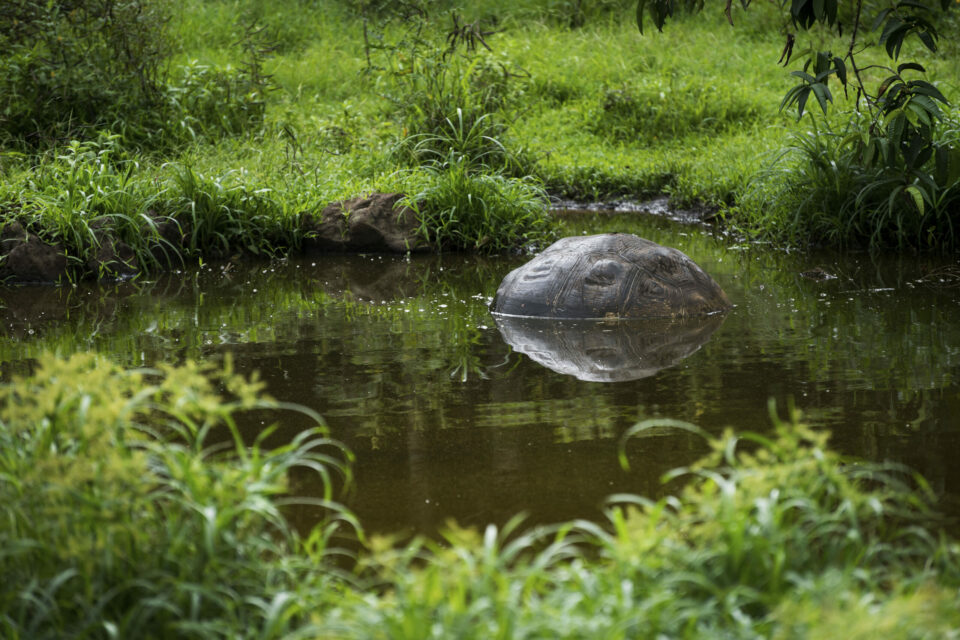

Connecting with Nature webinar 2021
Through a series of short videos and talks, our webinar explored how we engage children and teenagers throughout their education, and how we encourage them to protect the Islands and ensure that Galapagos remains a place of wonder.
Thank you so much to everyone who attended our ‘Connecting with Nature’ webinar on 13 May 2021. We hope you found it interesting and enjoyed learning more about GCT’s work to support communities in Galapagos and ensure more young people have the chance to get out and experience the natural world around them.
Although we are looking forward to hosting in-person events again soon, one of the benefits of online events is that we can welcome supporters from a wide range of countries. Almost 250 people registered for our ‘Connecting with Nature’ webinar from 19 different countries. We loved seeing this international support for education and conservation in Galapagos.
If you missed the webinar or want to watch it again, you can catch the recording below.
During these challenging times, it is important that we continue our education and outreach activities to ensure that the young people in Galapagos become more connected to their environment. Through a series of short videos and talks, the webinar explored how we engage children and teenagers throughout their education, and how we encourage them, and their families, to protect the Islands and its wildlife and ensure that Galapagos remains a place of wonder.
Jen Jones, GCT’s Head of Programmes, introduced the webinar and GCT’s Connecting with Nature programme. She then handed over to our host for the evening, David de Rothschild. David is an explorer, environmentalist, and the founder of the Voice for Nature Foundation. He spoke about how we are all intrinsically linked with nature and its natural systems, yet access to nature is a privilege not afforded to many and how important it is to focus on making access to nature available to all, in a way that is equitable and fair.
We are all born explorers, but over the years that innate curiosity that we are born with, that inner explorer, unfortunately, can get taught out of us. This means we often don’t ask the questions we need to be asking to evolve as an individual and as a species and to be able to live side by side with nature.
Urban Family Gardening Project
Before the first talk by Ashleigh Klingman, leader of the GCT-supported Urban Family Gardening Project, we were treated with a wonderful video on the project, including interviews from the local participants in Galapagos.
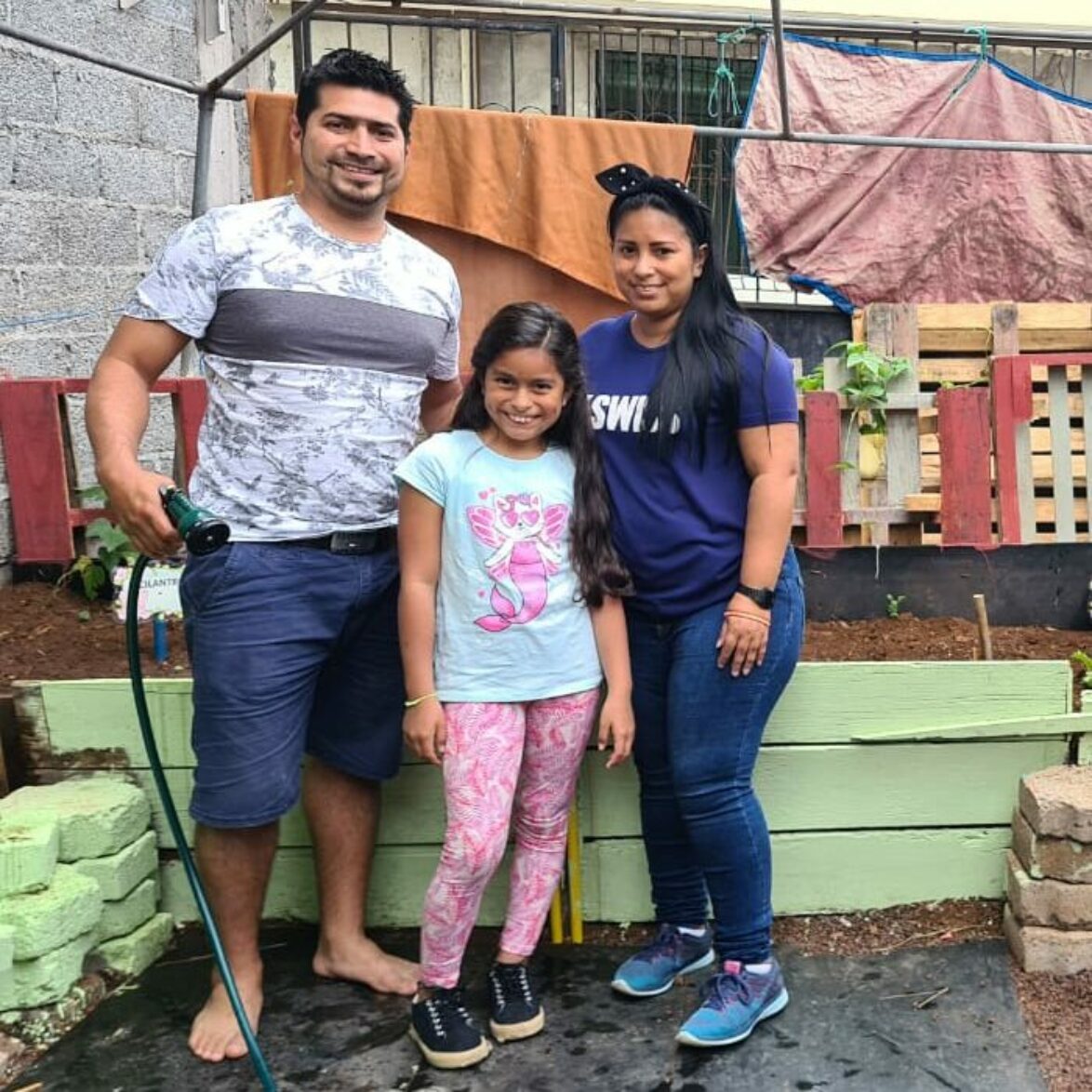
Despite facing dozens of outdoor education group cancellations for 2020, the Hacienda Tranquila team optimised resources and know-how to find a silver lining in the COVID-19 pandemic. With support from GCT, Ashleigh and a team of local elementary school teachers co-designed an education project that motivates families to produce organic food together, as well as connect to their island identity by adopting endangered, endemic plants for their gardens.
The project has been a great success and has had a positive impact on the families involved. In fact, we learnt that 89% of the families involved in the project increased their commitment to the environment and to conservation, through the adoption of endemic plants for their own gardens.
I am a public servant, so during the pandemic we had a high workload and work-related stress because of everything that was happening. The situation in Galapagos was very difficult. But when I had my garden, the time that I set aside for it was my personal time where I could forget about everything that was happening.
Gills Club
Next, GCT’s partner Dr Diana Pazmiño, who is a Professor at the Universidad San Francisco de Quito, introduced the Gills Club, a group for girls that she helped to set up in 2019. The Gills Club connects young girls (ages 8-12) to female shark researchers and scientists, so they can understand what it means to be a scientist, while also learning about scientific methods and nurturing their curiosity to ask questions and explore the natural world around them. The girls who participate in the club are taught about shark ecology and are given the opportunity to visit shark nurseries and witness how they are monitored and their importance.
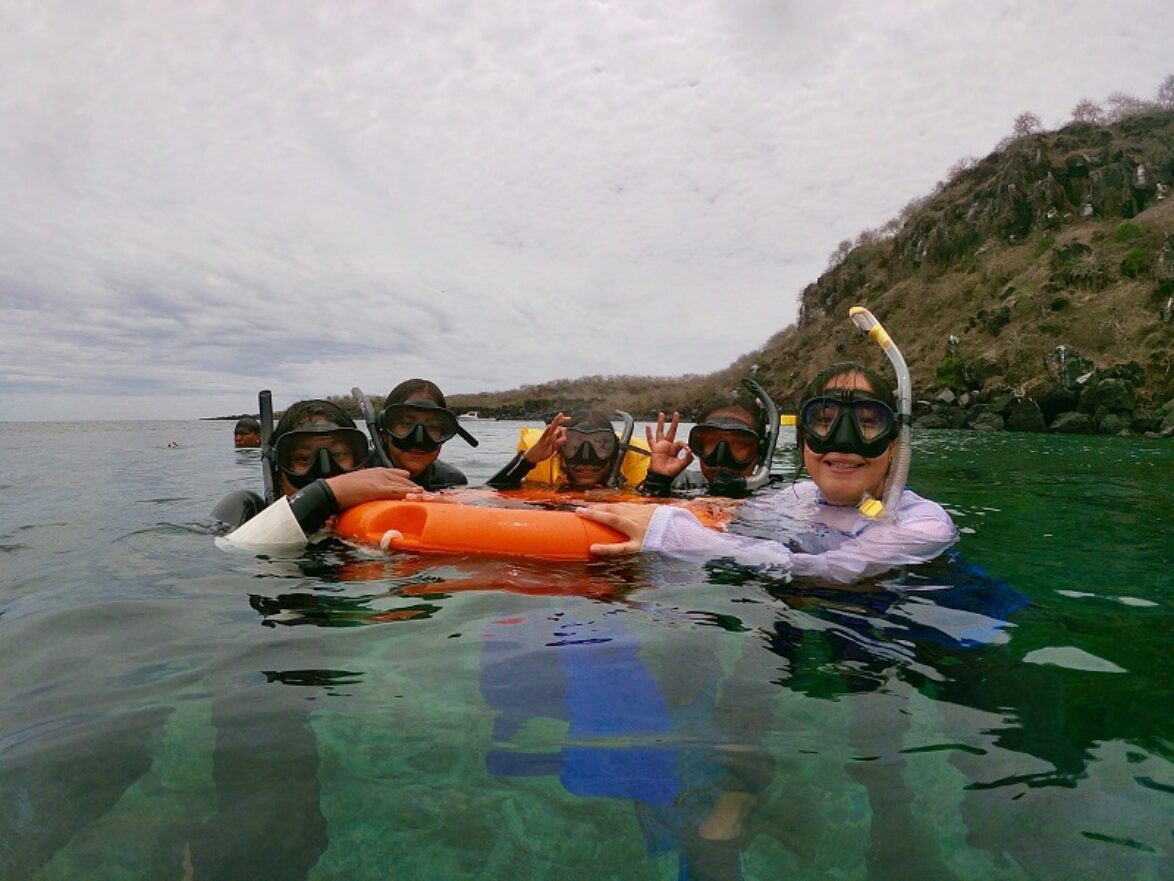
When I am older, I want to be a great scientist; that is one of my dreams I want to fulfil and to save many endangered species.
Diana, who was born in Galapagos and has a passion for environmental outreach, also spoke about her work on community engagement for the Galapagos Genetic Barcode project. It is the biggest citizen science project ever conducted in Galapagos, and trains local people in scientific methods such as processing and collecting DNA samples from the Islands.
Supporting other projects in Galapagos
Over time, GCT’s Education and Outreach Coordinator in Galapagos, Anne Guézou, has become increasingly involved in environmental education, which she views as a keystone to conservation and sustainability. She talked about her work on the Galapagos Tortoise Movement Ecology Programme and the Plastic Pollution Free Galapagos Programme and how she helps to create local synergies with a variety of different groups.
There has been such success engaging young people in Galapagos on Santa Cruz and Isabela with this project that there tortoise home learning pack through GCT’s educational site Discovering Galapagos.
When a conservation project does not have the support from local people it is more likely that it will not be able to sustain in the long term.
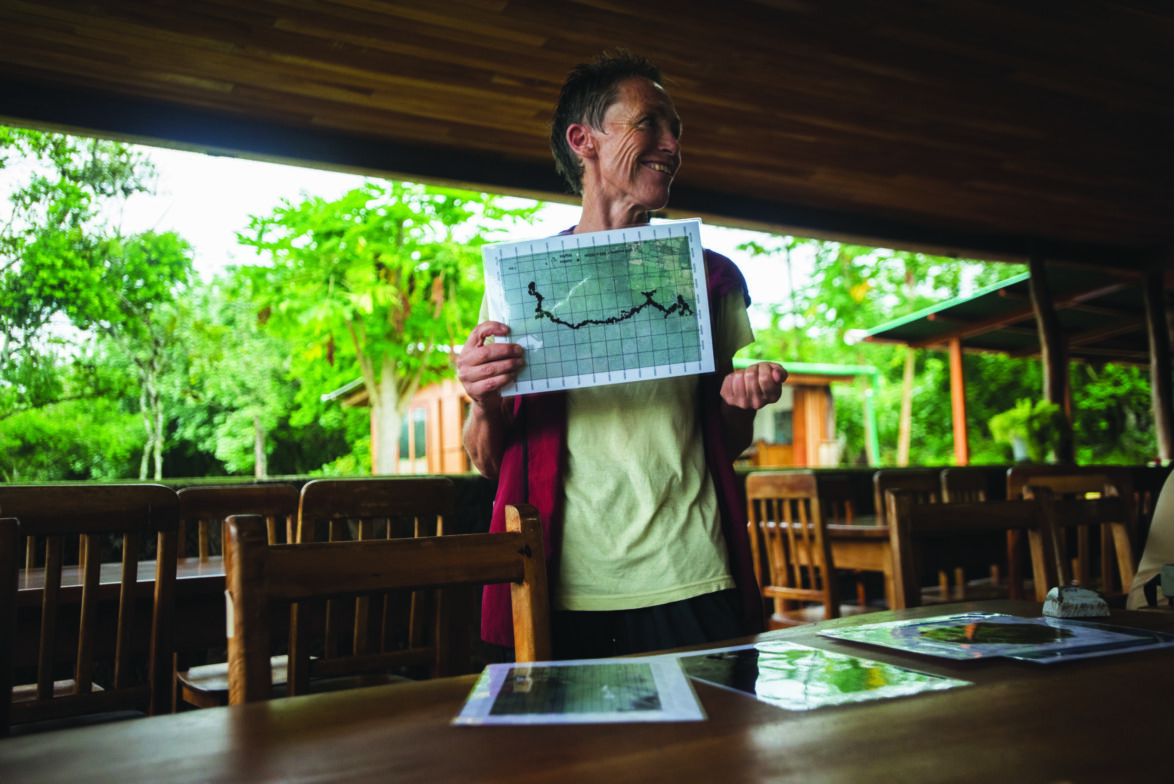
We also heard from Lady Márquez, from Ecology Project International, a non-profit foundation that seeks to empower the youths in the community so that they can develop and actively participate in conservation projects. She supports ‘Mola Mola’, a youth activist group who get involved in turtle conservation. as well as collecting data on microplastics for GCT.
The importance of connecting with nature as a child
Finally, Lucía Norris told her story. She first came to Galapagos when she was four years old and describes her amazing experiences with Galapagos wildlife such as playful baby sea lions, and how these encounters impacted her choices throughout her life. She worked for WWF Ecuador in Galapagos and then came to the UK to do an MPhil in Conservation Leadership at Cambridge funded through the Christ College Darwin and Galapagos Fund – which GCT helped to establish.
I really think that connecting kids with nature is one of the most important things that we can do here […] not every kid has that opportunity, most kids of the Islands don’t know how to swim, they have never been to other islands, and they have never even seen below the water. It seems unfair that we ask these kids to protect a place they don’t know. How can you love something you don’t know?
I have increasingly witnessed how today’s youth, who are the decision-makers of tomorrow, are losing their connection with nature. I strongly believe it has become a priority to reconnect the younger generations of Galapagos with their natural environment and empower them with the conservation and sustainability of the Archipelago.
Connecting with Nature
Our Connecting with Nature programme allows young people in Galapagos to experience the incredible flora and fauna around them, fostering a love for nature and strong sustainability values.
Related articles

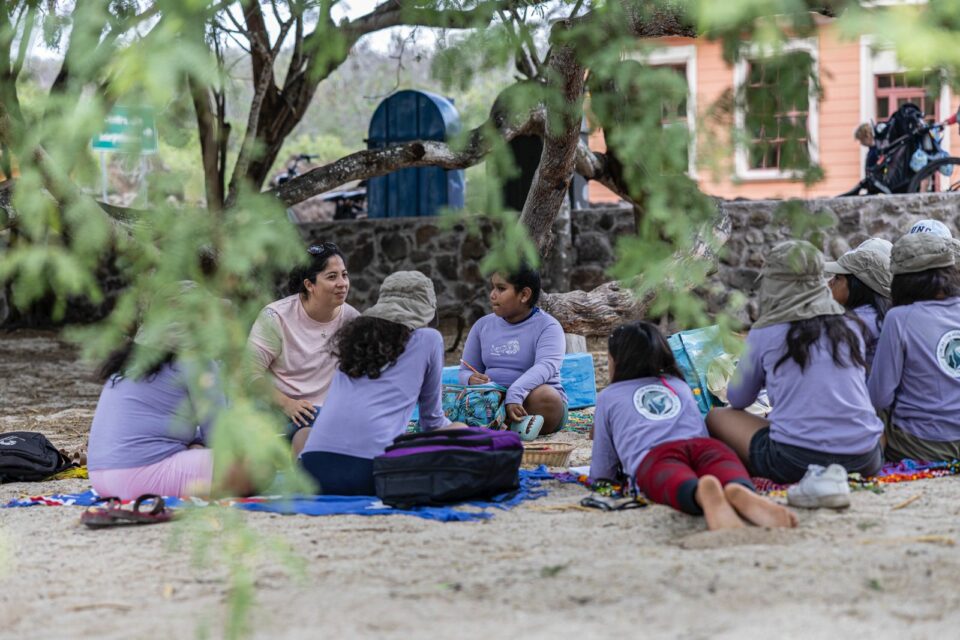
Gills Club: Empowering young women in Galapagos
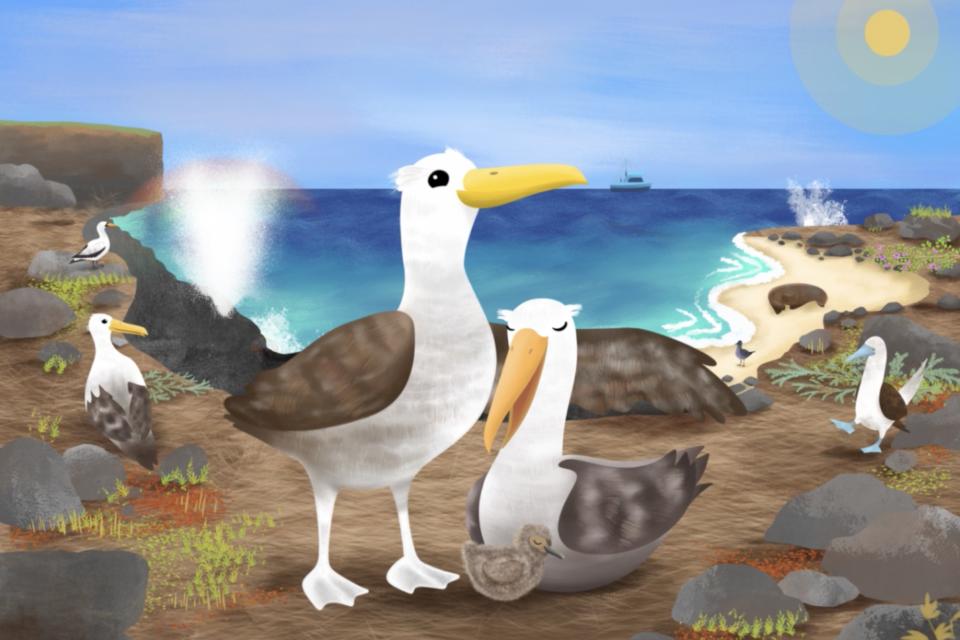
Meet the woman who brought Alberto the Waved Albatross to life


